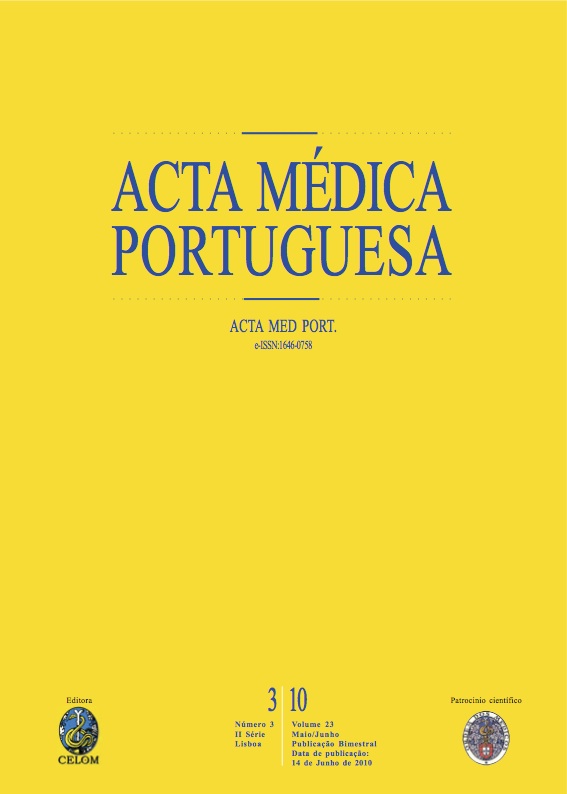Contágio - contribuição para a epistemologia e a ética da saúde pública.
DOI:
https://doi.org/10.20344/amp.622Resumo
European Medical thought on epidemics - ranging from the opposition clean/dirty, pollution, malaria, pestilential seeds to 19th century microbiology - has always been ruled by figures such as the miasma, the repulsive, the excrement, the filth, the corrupt, the contagion. Theoretically framed, in general, by Foucault's ideas, this research focuses on some aspects of the historical epistemology and ethics of Public Health. Based on the history of Tuberculosis (TB) management in Portugal and, more briefly, on the flu pandemics, we thematize aspects of Biopolitics, namely, the disciplinary power and the processes of indifferentiation and reification. We will focus on the disjunction between contamination and transmission, on the systems of inclusion and exclusion and on the differences between uncertainty, risk, danger, precaution and prevention, aiming to contribute to the public debate on an ethic of precaution. It will be attested that the praxis of Public Health inevitably calls together, at various levels, the old categories of medical ethos, among which are the catharsis, the crisis, and the kairos.Downloads
Downloads
Como Citar
Edição
Secção
Licença
Todos os artigos publicados na AMP são de acesso aberto e cumprem os requisitos das agências de financiamento ou instituições académicas. Relativamente à utilização por terceiros a AMP rege-se pelos termos da licença Creative Commons ‘Atribuição – Uso Não-Comercial – (CC-BY-NC)’.
É da responsabilidade do autor obter permissão para reproduzir figuras, tabelas, etc., de outras publicações. Após a aceitação de um artigo, os autores serão convidados a preencher uma “Declaração de Responsabilidade Autoral e Partilha de Direitos de Autor “(http://www.actamedicaportuguesa.com/info/AMP-NormasPublicacao.pdf) e a “Declaração de Potenciais Conflitos de Interesse” (http://www.icmje.org/conflicts-of-interest) do ICMJE. Será enviado um e-mail ao autor correspondente, confirmando a receção do manuscrito.
Após a publicação, os autores ficam autorizados a disponibilizar os seus artigos em repositórios das suas instituições de origem, desde que mencionem sempre onde foram publicados e de acordo com a licença Creative Commons









